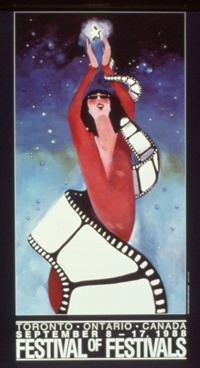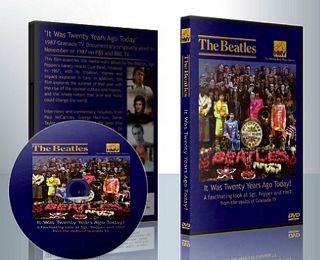Related Research Articles

A Hippie, also spelled hippy, especially in British English, is someone associated with the counterculture of the 1960s, originally a youth movement that began in the United States during or around 1964 and spread to different countries around the world. The word hippie came from hipster and was used to describe beatniks who moved into New York City's Greenwich Village, San Francisco's Haight-Ashbury district, and Chicago's Old Town community. The term hippie was used in print by San Francisco writer Michael Fallon, helping popularize use of the term in the media, although the tag was seen elsewhere earlier.

Abbot Howard Hoffman was an American political and social activist who co-founded the Youth International Party ("Yippies") and was a member of the Chicago Seven. He was also a leading proponent of the Flower Power movement.

John Benson Sebastian (born March 17, 1944) is an American singer, songwriter and musician who founded the rock band the Lovin' Spoonful in 1964 with Zal Yanovsky. During his time in the Lovin Spoonful, John would write and sing some of the bands biggest hits such as "Do You Believe in Magic", "Did You Ever Have to Make Up Your Mind", and "Daydream". Sebastian would leave the Spoonful in 1968 after the album Everything Playing. After leaving the Spoonful, Sebastian would focus on a solo career, releasing his first solo album in 1970 titled John B. Sebastian. Sebastian would continue on recording solo albums.
Folk rock is a fusion genre of rock music with heavy influences from pop, English and American folk music. It typically combines elements of folk and rock music together, it arose in the United States, Canada, and the United Kingdom in the mid-1960s. In the U.S., folk rock emerged from the folk music revival. Performers such as Bob Dylan and the Byrds—several of whose members had earlier played in folk ensembles—attempted to blend the sounds of rock with their pre-existing folk repertoire, adopting the use of electric instrumentation and drums in a way previously discouraged in the U.S. folk community. The term "folk rock" was initially used in the U.S. music press in June 1965 to describe the Byrds' music.

The Toronto International Film Festival is one of the most prestigious and largest publicly attended film festivals in the world, founded in 1976 and taking place each September. It is also a permanent destination for film culture operating out of the TIFF Lightbox cultural centre, located in Downtown Toronto.

Pretty Things were an English rock band formed in September 1963 in Sidcup, Kent, taking their name from Bo Diddley's 1955 song "Pretty Thing", and active in their first incarnation until 1971. They released five studio albums, including the debut The Pretty Things and S. F. Sorrow, four EPs and 15 UK singles, including the Top 20 UK Singles Chart "Don't Bring Me Down" and "Honey I Need". They reformed later in 1971 and continued through to 1976 issuing three more studio albums, and reformed once again from 1979 to 2020 releasing another five studio albums finalising with Bare as Bone, Bright as Blood.

Metric is a Canadian indie rock band founded in 1998 in Toronto, Ontario. The band consists of Emily Haines, James Shaw, Joshua Winstead and Joules Scott-Key. The band started in 1998 as a duo formed by Haines and Shaw with the name "Mainstream". After releasing an EP titled Mainstream EP, they changed the band's name to Metric.

The Irish Rovers is a group of Irish musicians that formed in Toronto, Canada in 1963 and named after the traditional song "The Irish Rover". They are best known for their international television series, contributing to the popularization of Irish Music in North America, and for the songs "The Unicorn", "Drunken Sailor", "Wasn't That a Party", "The Orange and the Green", "Whiskey on a Sunday", "Lily the Pink", "Finnegan's Wake" and "The Black Velvet Band".

Mon oncle Antoine is a 1971 French-language Canadian drama film directed by Claude Jutra for the National Film Board of Canada.

Donald Everett Shebib was a Canadian film and television director. Shebib was a central figure in the development of English Canadian cinema who made several short documentaries for the National Film Board of Canada and CBC Television in the 1960s before turning to feature films, beginning with the influential Goin' Down the Road (1970) and what many call his masterpiece, Between Friends (1973). He soon became frustrated by the bureaucratic process of film funding in Canada and chronic problems with distribution as well as a string of box office disappointments. After Heartaches (1981), he made fewer films for theatrical release and worked more in television.

Johnny Got His Gun is a 1971 American independent epic anti-war film written and directed by Dalton Trumbo, in his directorial debut, based on his 1938 novel of the same name. The film stars Timothy Bottoms, Kathy Fields, Marsha Hunt, Jason Robards, Donald Sutherland and Diane Varsi. It was Trumbo's first and only directorial effort.
The hippie subculture began its development as a youth movement in the United States during the early 1960s and then developed around the world.

The 24th Cannes Film Festival was held from 12 to 27 May 1971. The Palme d'Or went to The Go-Between by Joseph Losey.
Christine Fugate is an American film producer and director who has filmed across the globe, making projects in Thailand, Malawi, Australia and Great Britain.

Gerald Potterton was a Canadian director, animator, producer and writer. He is best known for directing the cult classic Heavy Metal and for his animation work on Yellow Submarine.

The 13th Toronto International Film Festival (TIFF) took place in Toronto, Ontario, Canada between September 8 and September 17, 1988. Midnight Madness programme was introduced at the festival. The festival screened more than 300 films from all over the world. Women on the Verge of a Nervous Breakdown by Pedro Almodóvar won the People's Choice Award at the festival, which later nominated for Best Foreign Language Film at Academy Award.
Ben Markson was an American screenwriter active from the very beginning of the sound film era through the end of the 1950s. During his 30-year career he was responsible for the story and/or screenplay of 45 films, as well as writing the scripts for several episodic television shows in the 1950s.

It Was Twenty Years Ago Today is a 1987 British-made television documentary film about the 1967 Summer of Love. It premiered on 1 June 1987, twenty years after the official release date of the Beatles' album Sgt. Pepper's Lonely Hearts Club Band, and presents the album as the central factor behind the events and scenes that led to the full emergence of the 1960s counterculture.
Morley Markson is a Canadian industrial designer, film director and cinematographer from Toronto, Ontario. He is most noted for his 1974 film Monkeys in the Attic, which was a Canadian Film Award nominee for Best Picture at the 26th Canadian Film Awards in 1975, and his 1988 documentary film Growing Up in America, which was a Genie Award nominee for Best Feature Length Documentary at the 10th Genie Awards in 1989.
Growing Up in America is a Canadian documentary film, directed by Morley Markson and released in 1988. A sequel to his 1971 film Breathing Together: Revolution of the Electric Family, the film profiles many of the same 1960s radical figures who had been featured in the original film, and the "yippies to yuppies" transformation that many of them had undergone by the 1980s.
References
- 1 2 Kaspars Dzeguze, "A collection of fools in Markson's Breathing Together". The Globe and Mail , June 23, 1972.
- 1 2 Roger Levesque, "Breathing Together recalls '60s idealism". Edmonton Journal , August 12, 1992.
- ↑ Joseph Gelmis, "The filming of greening". Newsday , April 14, 1971.
- ↑ Ina Warren, "From the '60s to the '80s; Markson's growing up at the International Festival". Ottawa Citizen , October 30, 1988.